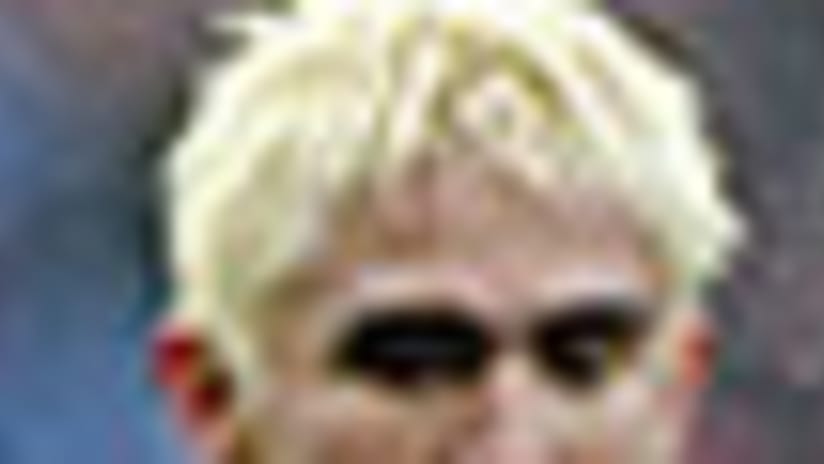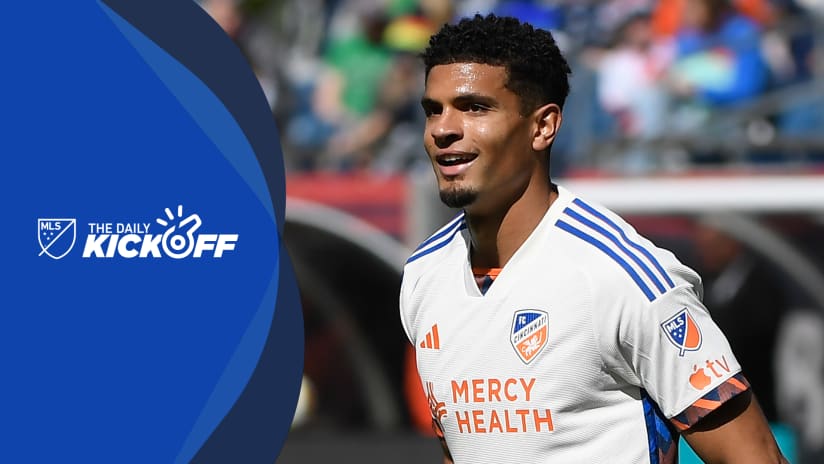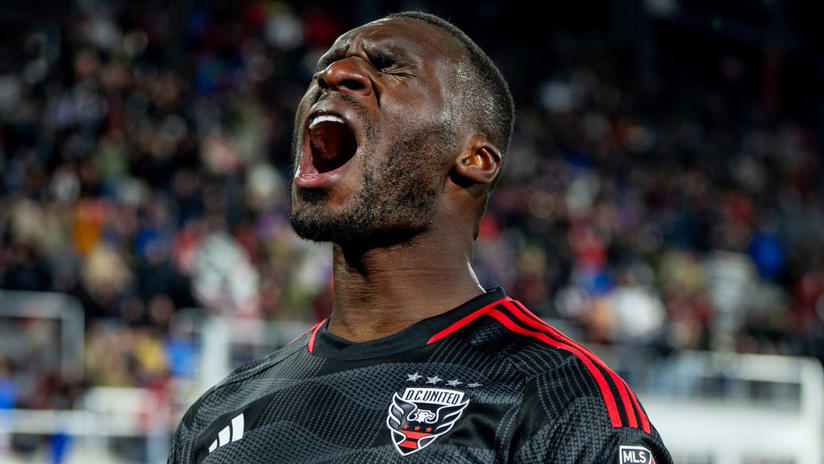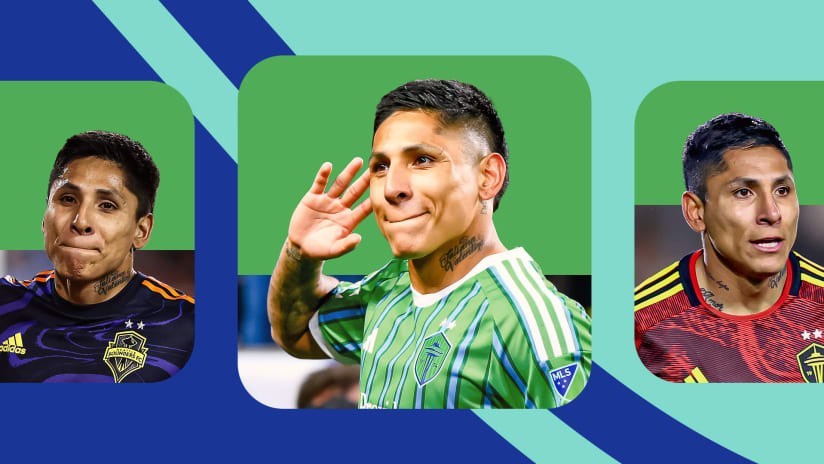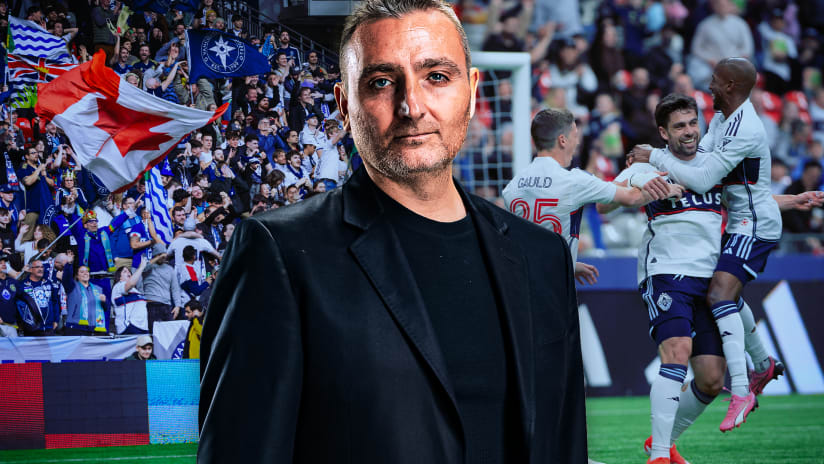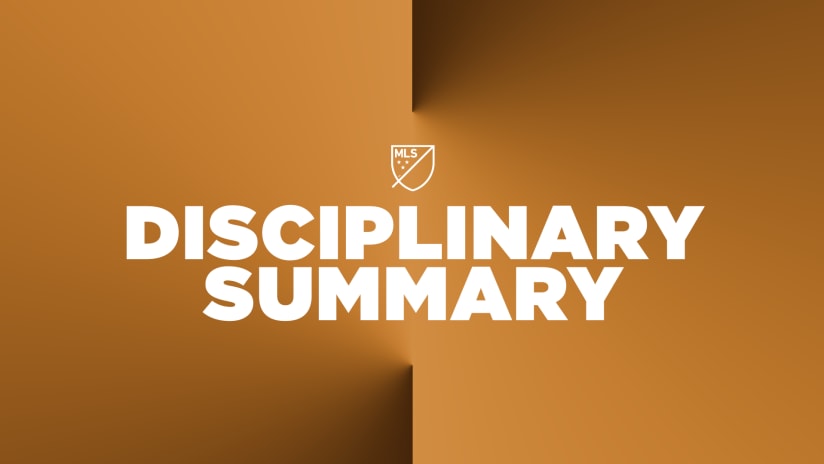the league's best team at 20-12 -- to even get to the MLS Cup final.
But in the season's last game, the team was staring at a 2-0 hole against the Los Angeles Galaxy with just 17 minutes left to play. To make matters worse, the game was being played in the worst possible conditions: a driving New England rainstorm and swirling winds made the field a lot colder than the 44-degree temperature indicated.
"I just remember it pouring down rain, wondering if the field was even going to be playable. In fact, it probably wasn't," said former D.C. United goalkeeper and current assistant coach Mark Simpson, recalling that night at Foxboro Stadium. "We got scored on early, in like the fifth minute. It was just so cold and rainy. It was kind of miserable the whole game. I didn't really have a lot of hope."
In the 73rd minute, however, the game and the fortunes of D.C. United began to change. The final 17 minutes were keyed by two substitutes, Tony Sanneh and Shawn Medved, who were both called into duty by head coach Bruce Arena midway through the second half. After Jaime Moreno won a free kick, Sanneh out-jumped everyone to whip Marco Etcheverry's cross into the back of the net, cutting the deficit in half.
"When we scored our goal with 17 minutes left, you just really kind of felt us lifted up," said Simpson. "That emotion and momentum carried over into scoring the second goal."
Just eight minutes later United were level. After a failed clearance by the Galaxy's Jorge Campos, Medved -- who had only been on the field for 11 minutes -- followed up his own shot, forcing the ball past Campos and into the net. The goal was gritty, spirited and determined: a fitting metaphor for United's entire season.
Medved's goal sent the match into overtime: a 30-minute, golden goal period to decide the first MLS champion.
"We were exhausted; we were really exhausted," said Moreno. "But we never lost the belief. All the work we put in, the way we fought -- it showed a team with a lot of heart, creating their destiny."
With L.A. reeling and all the momentum in their favor, United would need just four minutes of overtime to complete their remarkable comeback. The final, championship-winning goal has now become part of D.C. United folklore, images that United fans will never forget: Etcheverry's corner drifting into the Galaxy penalty box, Eddie Pope rising to meet the cross, his driven header crashing into the back of the net and the mob that ensued as Pope slid belly first across the wet grass in front of the United bench.
"I remember sitting on the last corner kick in overtime, and picking out a spot, and saying, 'If we score here, I am just going to drop to my knees,'" recalled Simpson. "It was a great feeling and pretty neat to be a part of."
The 1996 MLS Cup final was everything fans and the MLS front office could have hoped for. It was the perfect end to the league's first season. A two-goal comeback, an overtime thriller and a golden goal from the most unlikely of scorers. Hollywood could not have scripted it any better.
"To have the two best teams in the final like that, it was just an incredible atmosphere," said Simpson. "Forty-thousand plus in the pouring rain, I thought it was incredible," said Simpson.
"The way the game was played, it was perfect. It was just a great way to end it," added Moreno.
Looking back now, 10 years after that historic event, it would be impossible to overestimate what that one match has meant for D.C. United and Major League Soccer. After all, the league faced an uphill battle, trying to get a foothold in the already crowded landscape of American sports, and trying to get Americans interested in soccer, a 'European' sport they had long ignored.
In many ways, the 1996 MLS Cup final was exactly what Major League Soccer needed -- a match full of drama and excitement that could capture the imagination of American sports fans and show them how exhilarating and unpredictable the 'beautiful game' can be.
"I thought it had a great effect," Simpson said. "It really kind of set the league off, so to speak. I really think that it created interest for TV [viewers] and the fan base. The excitement was definitely there, and it was just so important to start the league that way."
Indeed, MLS has grown by leaps and bounds since it was kick-started by that historic 1996 season. With Toronto FC's inclusion next season, the league will have expanded to include five new teams since the inaugural campaign, and hopes to include a total of 16 teams by the year 2010. In the next two years, nine of the league's 13 teams will be playing in state-of-the-art, soccer-specific stadiums. And as illustrated by recent competitions against international opponents, the league is fast becoming competitive in the world.
The 1996 MLS Cup final served as a great springboard for D.C. United as well, the start of the dynasty that would see United become the flagship team of Major League Soccer.
"It definitely set the tone," said Simpson. "If you look at any league, you obviously want to be the first champion. I think it set the tone and tradition for D.C. United, as throughout the years the team has been successful. When people look at MLS, hopefully D.C. United comes to mind at the top of the list."
When D.C. United took the field on that historic night in Foxboro, fans and players alike knew they were going to be a part of something special. But it was doubtful even they had any idea just how extraordinary the match would be -- one that would etch itself into MLS history forever. While there have been nine other title games since then, none of them have come close to capturing the magic of the very first.
"I remember after the game being at the locker and in shock about what happened," said Moreno. "It was one of the greatest moments -- definitely special."

